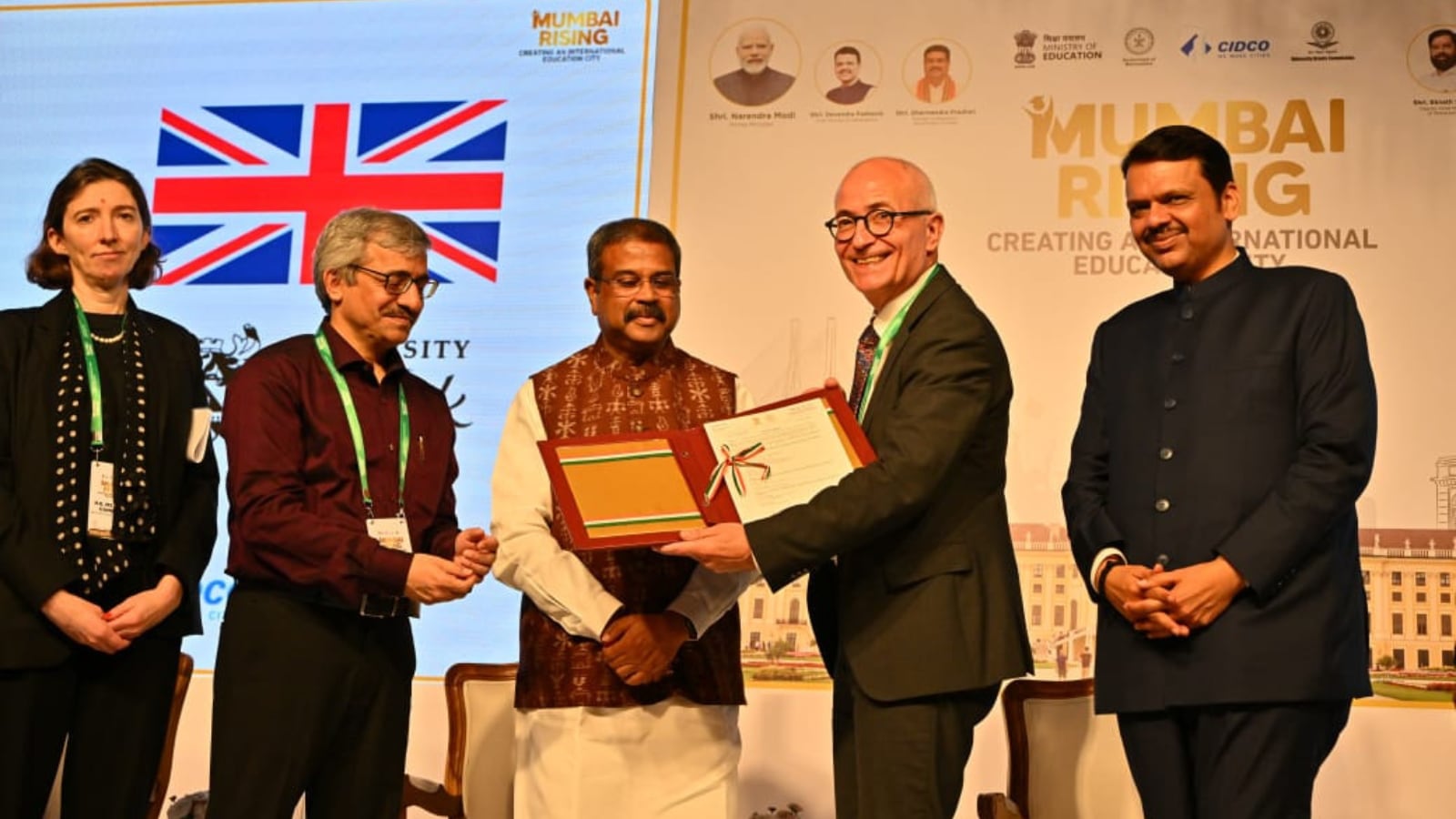The University Grants Commission (UGC) recently issued letters of intent to five foreign universities, including the University of York, University of Western Australia, and University of Aberdeen, giving them approval to set up independent campuses in India.
Against backdrop of the event, University of York Vice-Chancellor Prof Charlie Jeffery spoke with indianexpress.com about the rationale behind the institution’s India plans, and why Mumbai fits York’s academic strengths, and how its creative industries research and tech-led pedagogy will shape the new campus.
20% of the world’s youth live in India — and York wants to meet them halfway
“India is probably the most exciting location in the world right now for international higher education,” said Professor Charlie Jeffery, Vice-Chancellor of the University of York, outlining the university’s decision to set up its first full-fledged overseas campus in Mumbai.
With 20 percent of the world’s population under 25 living in India (50 percent population is below 25 according to a UNFPA report), and a national education policy that actively invites international universities, he said the country presented a unique blend of opportunity and alignment. “There’s an extraordinary demographic here,” he said, adding that Mumbai’s dynamism, particularly in the biotechnology and creative industries, made it a natural fit for York’s own academic strengths.
From York to Mumbai: 10,000 students, creative tech, and biotech in focus
Story continues below this ad
Set to open in September 2026, the University of York’s Mumbai campus will begin with 200–300 students, but plans to scale up to 10,000 over the next decade. According to Prof Jeffery, the initial academic offerings will include business, computer science, and creative technologies, with a research-led approach intended to merge academic knowledge with real-world industry applications.
The campus, which will operate independently as University of York in Mumbai, will deliver the same UK-accredited courses and will recruit a mix of faculty from York, India, and international locations. Over time, this model will shift toward greater local recruitment.
“We’re starting small to make sure we set everything up really effectively, but then we’re going to grow rapidly,” said Prof Jeffery.
Why York sees India as an easier bet than other countries
Story continues below this ad
Prof Jeffery credited India’s National Education Policy (NEP) with creating a transparent regulatory framework that international institutions can work with. “In other countries, regulations can be ambiguous or even hostile. But in India, the UGC has created a clear and predictable pathway. That makes India more welcoming than many other places,” he said.
CoSTAR Live Lab: UK-funded innovation in India’s financial capital
Stepping in midway through the conversation, Gavin Kearney, Co-Director of the CoSTAR Live Lab, explained how York’s pioneering research in creative technologies will be embedded in its Mumbai campus.
“CoSTAR is a UK government-backed initiative — £76 million invested to keep the UK at the cutting edge of creative innovation. The Mumbai campus will serve as a gateway for Indian students to access this innovation,” he said. He emphasised the potential for deep collaboration with Mumbai’s booming film and media industries, stating that students in creative programs will benefit from access to emerging technologies and joint projects that span both countries.
Degrees that are global, placements that are local
Story continues below this ad
The courses offered at the Mumbai campus will remain academically identical to those at York’s home campus. Under UGC regulations, all academic programmes must be previously accredited in the UK and delivered without compromise.
What will differ, however, is the strong local industry integration from day one. Prof Jeffery noted that Indian students and parents have higher expectations when it comes to placements and employer engagement, something he says York has taken seriously.
“We already have an MoU with the Tech Entrepreneurs Association of Mumbai and existing relationships with Sun Pharma and Tata,” he said, adding that the university had also committed to setting up a dedicated industry placements framework in Mumbai.
‘Not to divert, but to deliver’—why York doesn’t see this as student migration reversal
Story continues below this ad
When asked whether this move is a response to tighter immigration rules and a way to retain Indian students within India, Prof Jeffery clarified, “This isn’t about diverting students who might have gone to York in the UK. I think one of the things that we see is the very, very high ambition of the Indian government to enroll more young people in higher education, and we see ourselves meeting that unmet demand.”
He also pointed out the environmental benefits of international universities setting up locally. “Flying to the UK brings an environmental cost. Bringing the university to where students already are makes sense,” he said.
No compromise on academic rigour and quality
The Mumbai campus will uphold the same quality assurance and academic rigor that York is known for globally. Prof Jeffery underscored the institution’s elite status—one of only four UK universities with top-tier ratings in both research and teaching alongside Oxford, Cambridge, and Imperial College London.
When asked how standards will be maintained, he clarified that a University of York-appointed provost will oversee all academic matters in Mumbai, ensuring standards and recruitment match those back home.
Story continues below this ad
“The University of York in Mumbai will be just as much York as our original campus,” he said.
What’s next: A Nobel in Mumbai?
Looking ahead, Prof Jeffery said the long-term vision is not just growth in numbers but research output, industry partnerships, and global impact. “It took us 61 years to get our first Nobel Prize back in York. It’s our ambition that it won’t take that long in Mumbai,” he said.
The University of York’s Mumbai campus is expected to open doors in 2026.




